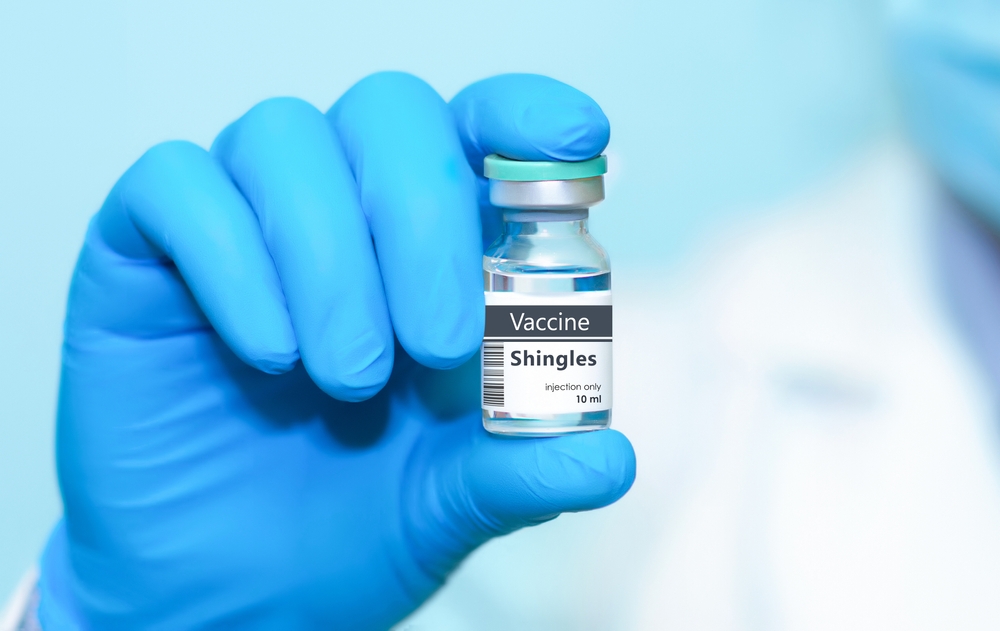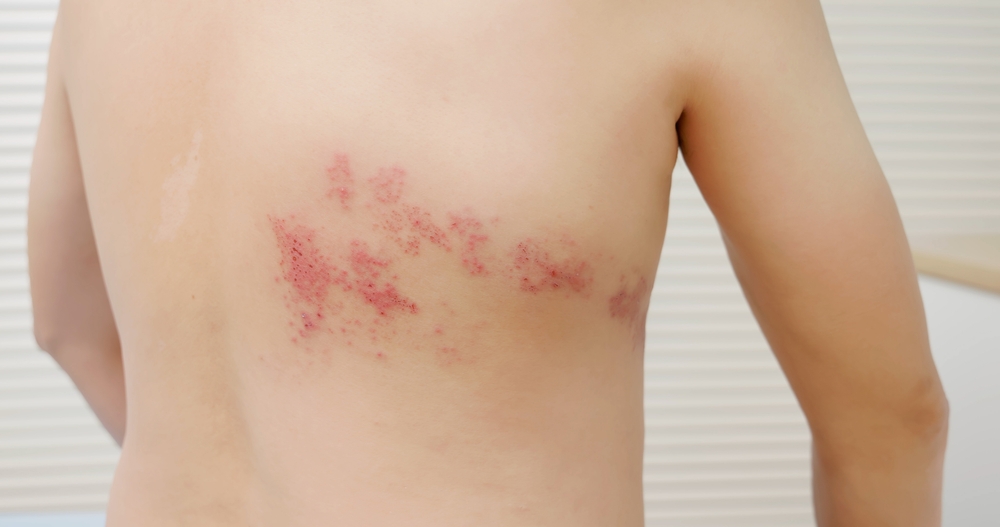Shingles, also known as herpes zoster, is a painful, often debilitating rash that affects roughly 1 million people each year. You can’t develop shingles unless you’ve been exposed to the chickenpox virus. However, more than 99% of Americans born in or before 1980 have had chickenpox, even if they don’t remember having it.
The Centers for Disease Control and Prevention recommends everyone get the two-dose shingles vaccine starting at age 50 to prevent the virus.
Now a recent study found that people may get even more benefit from the vaccine than preventing shingles. It has been shown to improve heart health in certain populations.
In a study, published May 5, 2025 in the European Heart Journal, researchers found people given the shingles vaccine had a 23% lower risk of cardiovascular events, including stroke, heart failure and coronary heart disease, for up to 8 years.
The study examined more than 1 million people aged 50 or older with data from 2012 onward. The protective effect was particularly prominent in men, people under 60 and those who smoke, drink or aren’t active, the study found.

Shingles occurs when the varicella zoster virus, which causes chickenpox, is reactivated in the body. The virus can lie dormant for many years and only reactivates in specific circumstances, such as when a person is stressed, has some form of trauma or injury, or has a weakened immune system.
Although the main visible symptom of shingles is a painful blistering rash along a nerve on the chest or sometimes on the face, many studies have shown a link between shingles infection and an increased risk of cardiovascular events like heart attack and stroke, likely due to unseen inflammation in the body caused by shingles.
There are several reasons why the shingles vaccine may help reduce heart disease. A shingles infection can cause blood vessel damage, inflammation, and clot formation that can lead to heart disease. By preventing shingles, vaccination may lower these risks,” said Dong Keon Yon, a professor from the Kyung Hee University College of Medicine in Seoul.
“Our study found stronger benefits in younger people, probably due to a better immune response, and in men, possibly due to differences in vaccine effectiveness. The shingles vaccine may help lower the risk of heart disease, even in people without known risk factors. This means that getting a shingles vaccine may help with more than the viral infection that causes painful rashes — new research shows it can also lower the risk of heart disease.
Shingles can be debilitating for people. It often begins as a burning, tingling, or shooting pain on one side of the body. A rash will typically appear a few days after the pain and sensations start. The rash usually presents as a band of red, fluid-filled blisters, often on one side of the body, like a stripe around the chest, back, or abdomen. Some people may experience a fever, headache, chills, and an upset stomach. The most common complication of shingles is postherpetic neuralgia (PHN), which is persistent nerve pain in the area where the rash was located. For some people, the pain is so severe that it hurts to put on clothing.
Shingles usually runs its course in 3 to 5 weeks, from the initial appearance of symptoms to the resolution of the rash and pain. The blisters typically scab over within 7-10 days, and the scabs heal within another 2-4 weeks.

This isn’t the first time a shingles vaccine has been shown to have other possible health benefits. A study published last year in Nature Medicine found the shingles shot also seems to delay the onset of dementia, a memory-impairing condition. In an expert reaction shared alongside the study, Dr. Sheona Scales, the director of research at Alzheimer’s Research UK, said, “Dementia isn’t an inevitable part of aging; it’s caused by diseases like Alzheimer’s. So finding new ways to reduce people’s risk of developing these diseases is vital.
Talk to your primary care provider about the benefits to you for getting the shingles vaccine. If you have cardio-vascular disease or a family history of it, the Mason City Clinic provides the highest level of expertise in treating heart disease with physicians who are board certified in cardiology, cardiovascular disease, nuclear cardiology, cardiac electrophysiology and interventional cardiology.
To learn more or make an appointment to see a cardiologist please call 641.494.5300.
Up-to-date. Down-to-earth. Close to home. Lots of great reasons to make Mason City Clinic
your first choice for all your family’s specialty healthcare needs.
250 S. Crescent Drive, Mason City, IA 50401
Tel: 641.494.5200
Toll Free: 800-622-1411
Fax: 641.494.5403